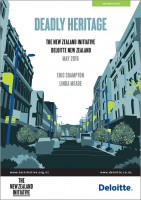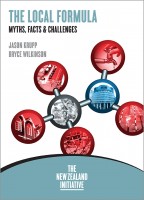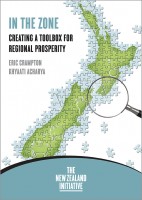This report, the first in a two-part series, seeks to examine the factors that prevent greater mineral extraction in New Zealand, a business model that could help stem some of the economic pressures faced by many of the country's rural regions. The key findings of Poverty of Wealth are that: Rural New Zealand is in decline Economic growth is concentrated in urban areas, particularly Auckland, Wellington and Christchurch, whereas seven of the rural regions recorded negative economic growth in the year ending March 2013, and a further two recorded flat growth. Read more













